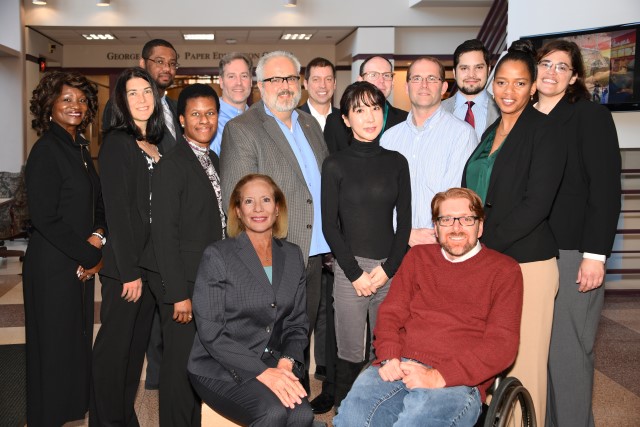- You are here:
- GT Home
- Wireless RERC
- Home
- About Us

About the Georgia Institute of Technology
The Georgia Institute of Technology is one of the nation's top research universities, distinguished by its commitment to improving the human condition through advanced science and technology. As a leading technological university, Georgia Tech stands out as a distinctively different kind of university, one that is eagerly encouraging and developing the revolutionary technologies of the 21st century with more than 100 centers focused on interdisciplinary research that consistently contribute vital research and innovation to American government, industry, and business. Its campus occupies 400 acres in the heart of the city of Atlanta, where 20,000 undergraduate and graduate students receive a focused, technologically based education. Accredited by the Southern Association of Colleges and Schools (SACS), the Institute offers many nationally recognized, top-ranked programs. Undergraduate and graduate degrees are offered in the Colleges of Architecture, Computing, Engineering, Scheller College of Business, Sciences and the Ivan Allen College of Liberal Arts.
About the Center for Advanced Communications Policy
The Center for Advanced Communications Policy (CACP) focuses on key issues that influence the development, implementation and adoption of cutting-edge, advanced communications technologies. CACP work includes assessment of policy issues and production of regulatory filings, identification of future options for innovation, and articulation of a clearer vision of the ever-changing technology landscape. Center research areas include wireless communications and platforms; accessible technology design and use for people with disabilities; emergency alerts and communications; higher education policy and evaluation; workforce development and employment for people with disabilities; new communications modes such as social media and online participatory platforms; STEM (science, technology, engineering, and mathematics) education, and the cultural impact of technology shifts. CACP, in its role as an objective and neutral source, collaborates with government, industry and academia at the national, local, state, and international levels.
About Georgia State University Center for Leadership in Disability (CLD)
Georgia State University's Center for Leadership in Disability (CLD) is a University Center for Excellence in Developmental Disabilities Education, Research, and Service (UCEDD) funded by the Administration on Intellectual and Developmental Disabilities. The CLD is located within the Mark Chaffin Center for Healthy Development and the School of Public Health. CLD’s mission is to translate research into sustainable community practices that contribute to independent, self-determined, inclusive, and productive lives for people with disabilities and their families. The major activities of CLD include community education and technical assistance to people with developmental disabilities, family members, service providers, educators, and professionals; research on implementation of evidence-based practices and the policies that support them; disseminating information about services, supports, and resources for people with developmental disabilities, their families, professionals, service providers, and families; providing advocacy and leadership training; and designing and delivering educational programs for graduate students and professionals.
About the University of Texas at Arlington School of Social Work (UTA SSW)
The University of Texas at Arlington School of Social Work has been the leader in social work education and research for the North Texas community since 1967. The UTA SSW has over 2,000 students currently enrolled across baccalaureate, master’s and doctoral programs, with active external funding from the National Science Foundation, the National Institute on Minority Health and Health Disparities, the US Department of Transportation, and the Health Resources and Services Administration. Key project personnel are drawn from the UTA Research Institute, the College of Liberal Arts and the College of Nursing and Health Innovations. We are also collaborating with an award-winning non-profit service provider, Helping Restore Ability (HRA) that “helps restore ability of individuals with disabilities by assisting them to remain self-sufficient so they may continue to live in their homes, go to school and/or work, and most importantly to maintain their independence and dignity”.
About the Shepherd Center
Founded in 1975, Shepherd Center is the largest free-standing specialty hospital in the U.S., with comprehensive programs in spinal cord injury, brain injury, MS, ALS, spina bifida, post-polio syndrome, and other neuromuscular diseases. Shepherd is the premier provider in the Southeast of medical rehabilitation and community re-entry services and supports for people with disabilities. The mission is to help people who have experienced a catastrophic injury or disease to rebuild their lives with dignity, hope and independence, advocating for their full inclusion in all aspects of community life, including acquired brain injury, multiple sclerosis, and other neuromuscular problems. Shepherd Center is accredited by both JCAHO and CARF as a catastrophic care hospital dedicated to neurorehabilitation. The campus includes the Crawford Research Institute.


